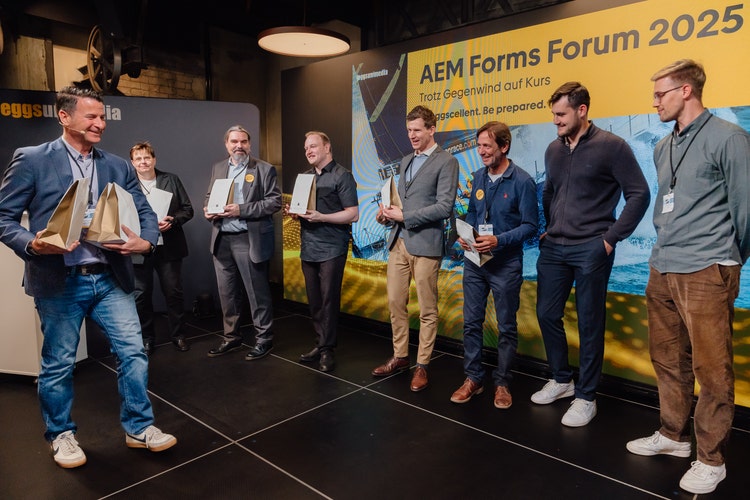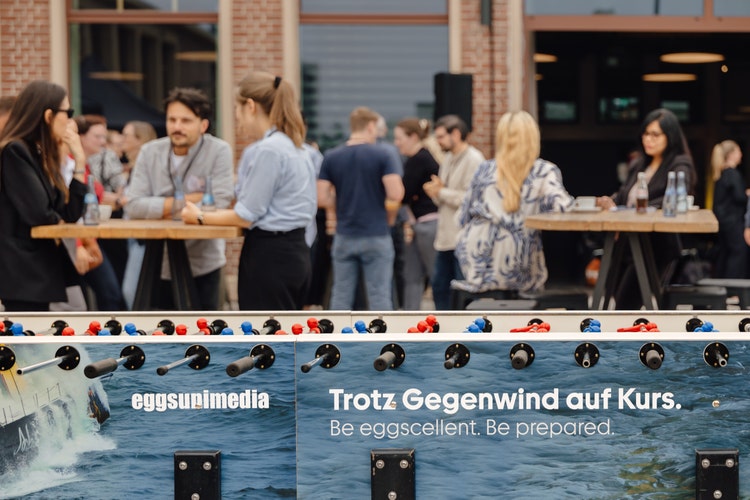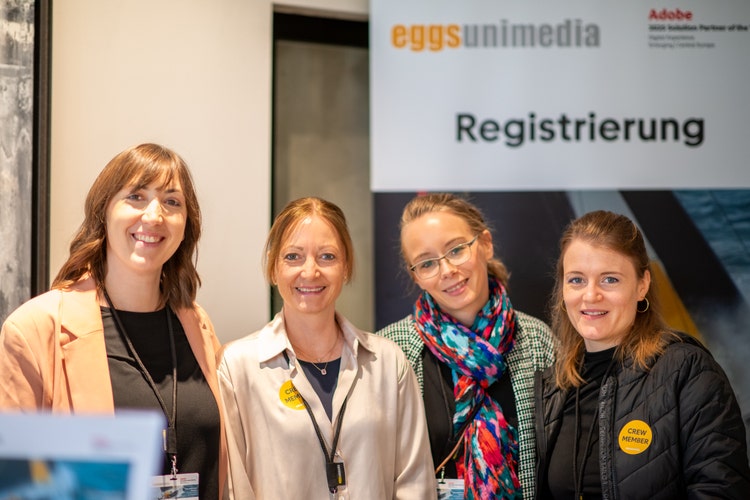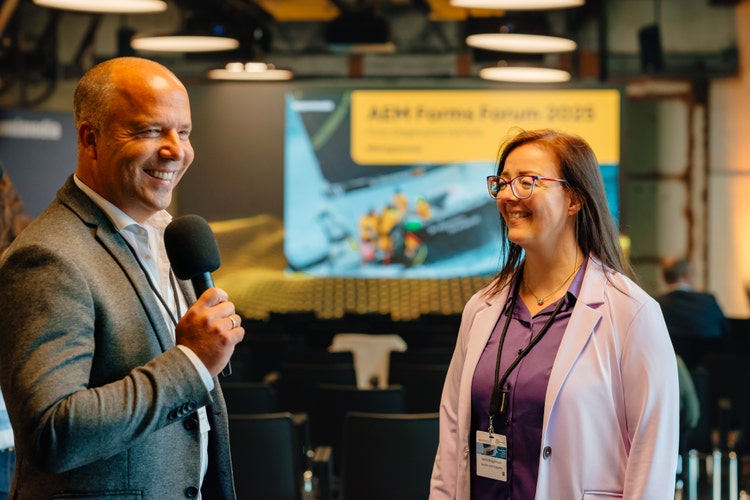AEM Forms Forum 2025
Here are the highlights of the event.
STAYING ON COURSE DESPITE HEADWINDS!
Around 80 decision-makers from IT and business gathered on May 22, 2025, for the annual AEM Forms Forum hosted by eggs unimedia.
In his welcome address at the 12th AEM Forms Forum, Martin Brösamle discussed the question: "How do companies stay on course in turbulent times?" The answer: with the right tools, innovative processes, and a strong crew – true to the "Leavitt's Diamond Change Management Model." Moreover, today’s environment demands greater flexibility and adaptability than in the past. In dynamic markets and with changing customer needs, rigid structures pose a risk. Forms play a central role here: they represent the crucial moment in the customer journey when a prospect becomes a customer. Whether in applications, damage reports, or contract signings – an efficient, accessible, and intelligent form process can either delight or frustrate. This year’s forum impressively demonstrated how companies can optimize their processes and successfully navigate headwinds with AEM Forms, AI-powered solutions, and an adaptable mindset.
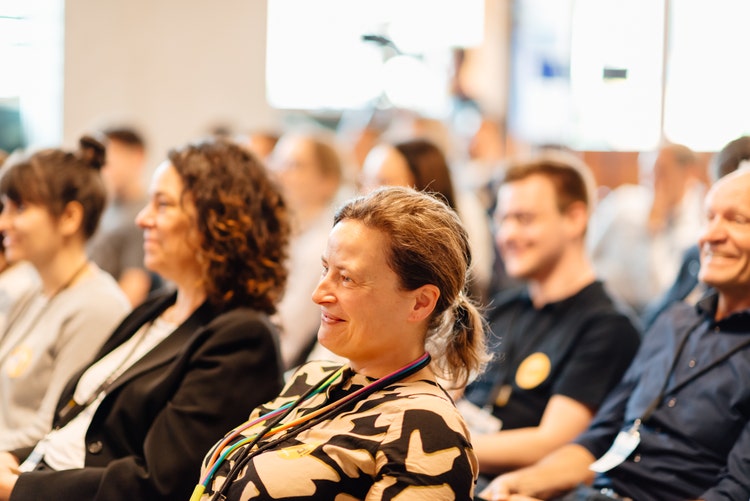
The Keynote
In her keynote titled "AI as the Third Half of the Brain," Astrid Brüggemann impressively demonstrated why companies must develop future-proof skills to collaborate effectively with both AI and humans. She emphasized that artificial intelligence is not just a technical tool but should be firmly embedded in corporate strategy and structure. Using practical examples—from claims processing to fraud detection—she showcased the diverse applications and explained why 75% of AI projects currently still fall short of expectations. Particularly memorable was her observation that AI will mainly assist us with tasks we either don’t feel like doing (“Ugh!”) or don’t understand (“Huh?”). Brüggemann also made it clear: AI can do many things—show empathy, be creative—but human encounters, genuine judgment, and responsibility remain irreplaceable.
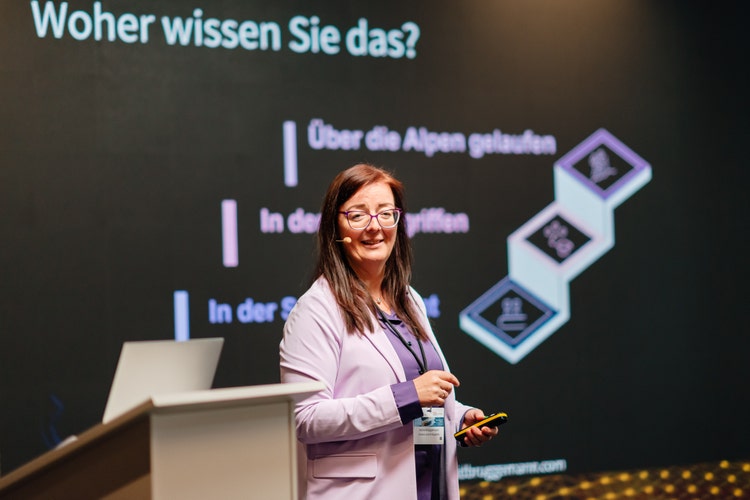
AEM Forms in Action
What would an AEM Forms Forum be without a live demo?
Martin Grimm impressively showed how quickly and intuitively adaptive forms can be created with AEM Forms, which not only work optimally on all devices but also integrate seamlessly with third-party systems for pre-filling. In his demo, he demonstrated how forms can be automatically translated into other languages and how PDF versions (Documents of Record) can be generated directly from HTML forms. Using a user-friendly Rule Editor, authors without programming skills can precisely control which form fields are shown or hidden under which conditions—thus creating smart, dynamic forms. Additionally, form components can be centrally managed as reusable fragments, significantly reducing maintenance effort and coordination processes. A practical and hands-on insight into the versatile possibilities of AEM Forms.
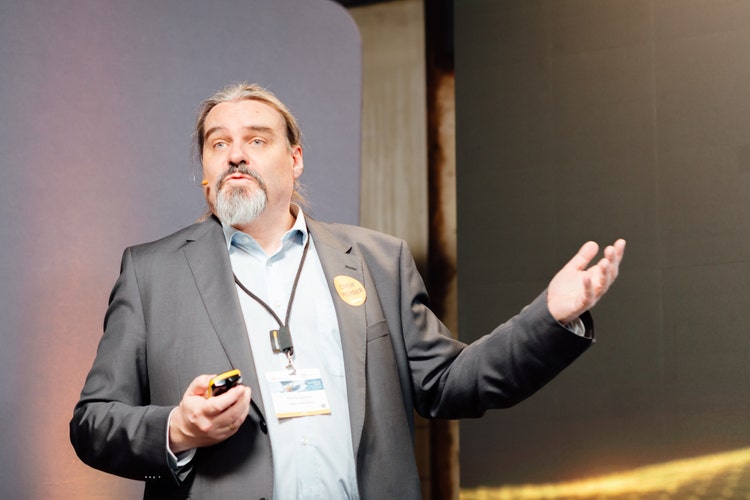
IBB: Funding Banking and Digitalization – How Does That Fit Together?
Eike Schmaida, CDO of Investitionsbank Berlin, and Julian Manzel from eggs unimedia took the participants on an impressive journey through seven years of digitalization. They reported on the challenges faced by a state development bank with complex funding guidelines, extensive application and review processes, as well as strict regulatory requirements. The value of the jointly developed digital infrastructure with AEM Forms became particularly clear during the Corona emergency aid: within a very short time, a complete application and execution process had to be set up for an unprecedented volume of funding applications. What is usually manageable and plannable suddenly became an enormous test of endurance—a feat that would not have been possible without the flexibility and performance of AEM Forms. Their conclusion: a digital foundation, the courage to change, and a strong team make it possible to provide fast and reliable assistance even under extreme pressure.
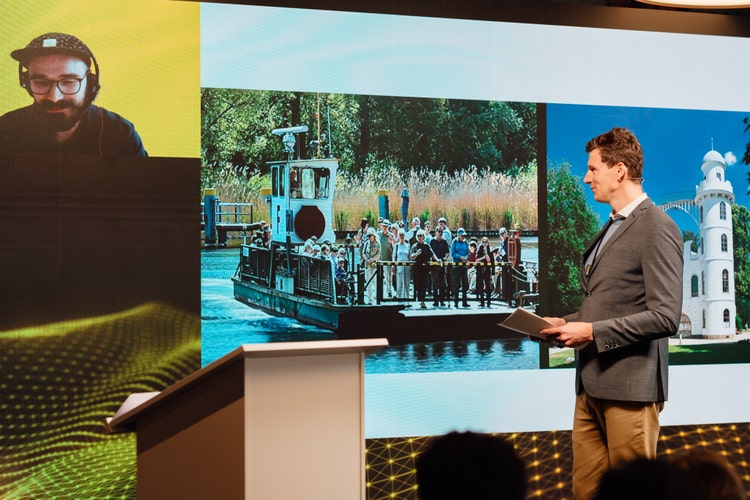
Accessibility in Forms Illustrated by Customer Examples
In his presentation, Jan-Erik Timme provided valuable insights into designing accessible forms and demonstrated, using a recent form audit from the banking sector, what really matters. He not only introduced proven tools such as axe and WAVE but also emphasized the importance of manual testing to reliably identify digital barriers. The main focus was on clear labels, logical grouping of related fields, understandable error messages, and full keyboard accessibility. Through his tested project approach—from analysis to coordination to implementation—he made it clear that accessibility is not an afterthought but must be an integral part of every form development from the start. A valuable impulse for everyone aiming to create inclusive digital experiences.
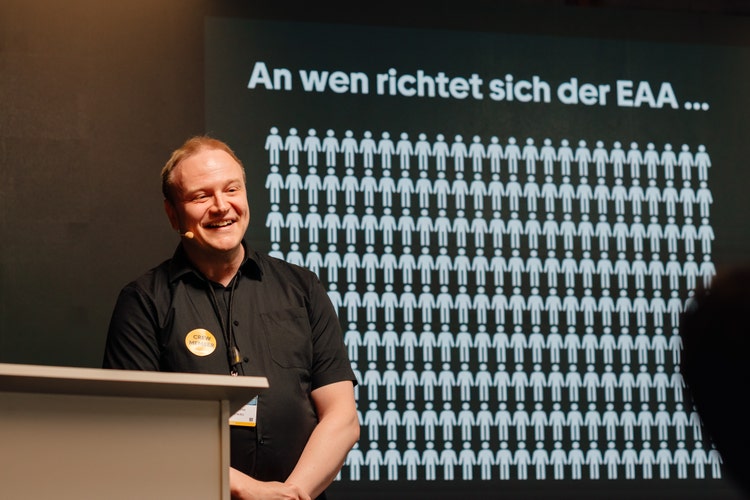
Lunch Break = Basketball Competition
At 12:30 p.m., the lunch break began, during which the catering team treated the participants to a variety of delicious dishes. For some sporty variety, Hartwig Thöne, sports presenter at Sport1, charmingly and humorously hosted the basketball shooting competition. In the relaxed atmosphere, participants quickly started conversations, made contacts, and exchanged ideas. The concept of promoting interaction and networking in a casual way was once again a complete success this year.
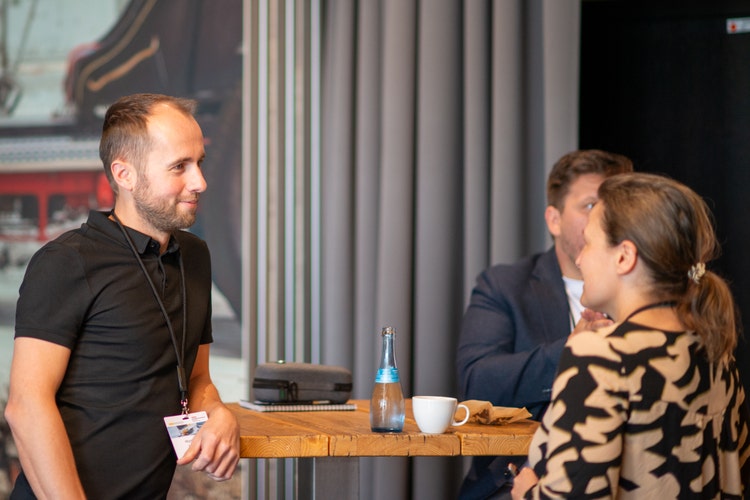
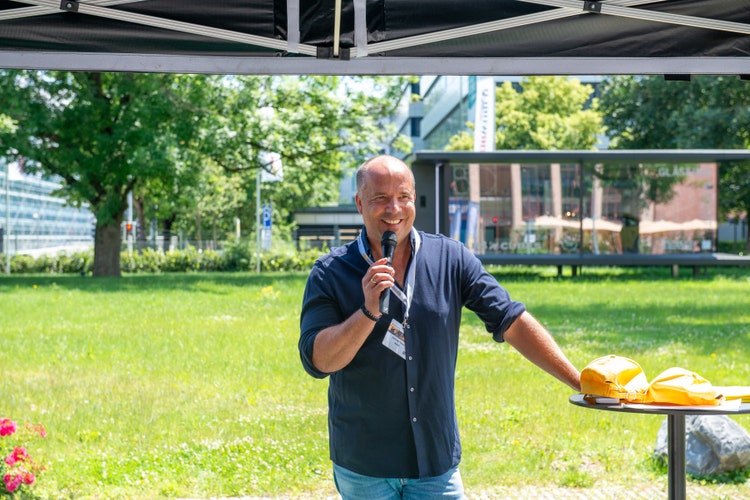
Heading into the afternoon on a healthy note
Vitality coach Michael Steinkohl inspired the audience with his keynote "High Performance in Headwinds – How Companies Stay on Course Not by Working Harder, but Smarter."
With a mix of scientifically grounded methods, motivating impulses, and practical everyday tips, he showed ways to achieve more vitality, energy, and joy of life. He vividly illustrated the importance of resilience by comparing a hacky sack to a bouncy ball. Particularly striking was his question to the audience: Who wants to be among the 5% of healthy people without medication at the age of 80? No one said no. The presentation was rounded off with practical exercises and a detox breathing exercise, which sent everyone energized into the next program segments.
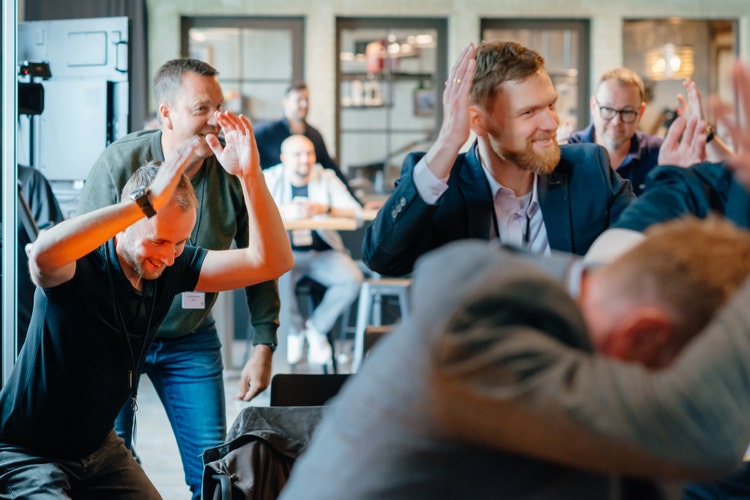
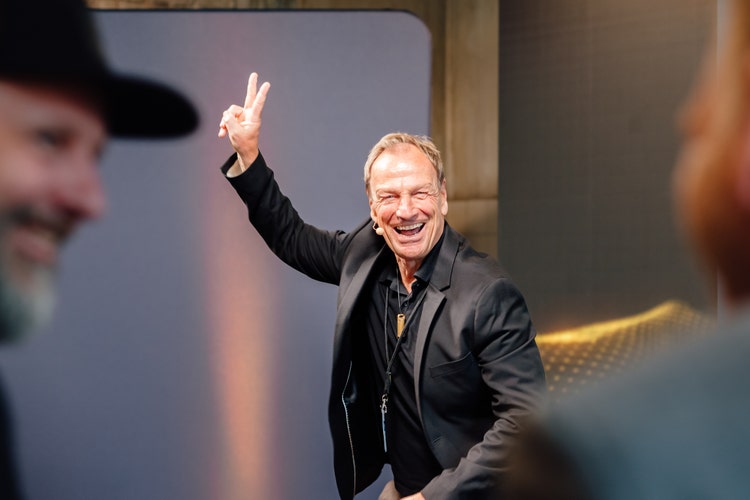
AEM Forms at ZKRD
In their presentation “AEM Forms at the German Central Bone Marrow Donor Registry,” Kerstin Mitterwald and Martin Grimm showcased the successful porting of the existing AEM Forms JEE application to AEM Forms OSGi. The challenge was to continue using the proven designer templates largely unchanged while simultaneously integrating new requirements, such as the retrieval of individual documents. Using the standard services of AEM Forms—including PDF Forms Service, Output, Assembler Service, and Reader Extensions—a modern and user-friendly solution was created. The effort for migration and expansion remained manageable thanks to the use of existing AEM built-in tools. Since then, the ZKRD has benefited from a future-proof system that is flexibly expandable and optimally tailored to the complex processes of the donor registry.
Through the AEM Forms platform, over 450,000 new bone marrow donors were registered worldwide in 2024.
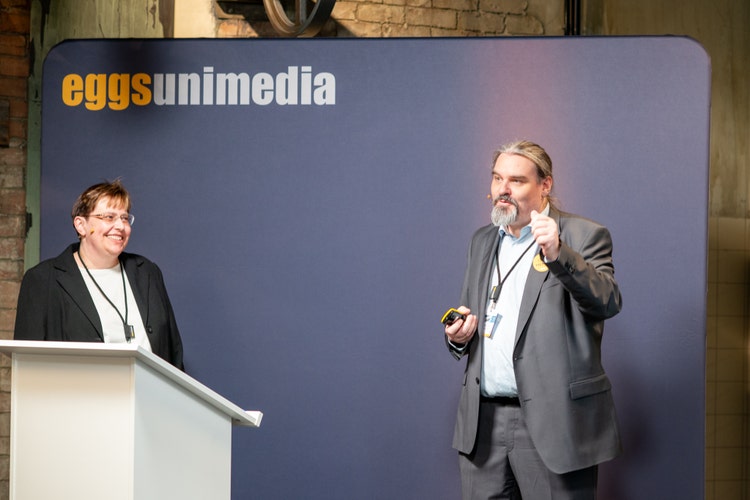
AEM Forms AI Assistant and Conversational Forms
Next, Dominik Emmert from Adobe presented the two most exciting innovations in AEM Forms: the AEM Forms AI Assistant and Conversational Forms.
The generative AI for adaptive forms opens up completely new possibilities and significantly simplifies form development. Thanks to intelligent AI features, forms can be created faster than ever before using prompts, and existing layouts can be effortlessly adjusted.
With Conversational Forms, interacting with forms becomes as easy and intuitive as chatting with a virtual assistant. The component can be dragged and dropped directly onto an AEM Sites page—no programming skills required. This allows even non-developers to quickly create interactive and user-friendly forms.
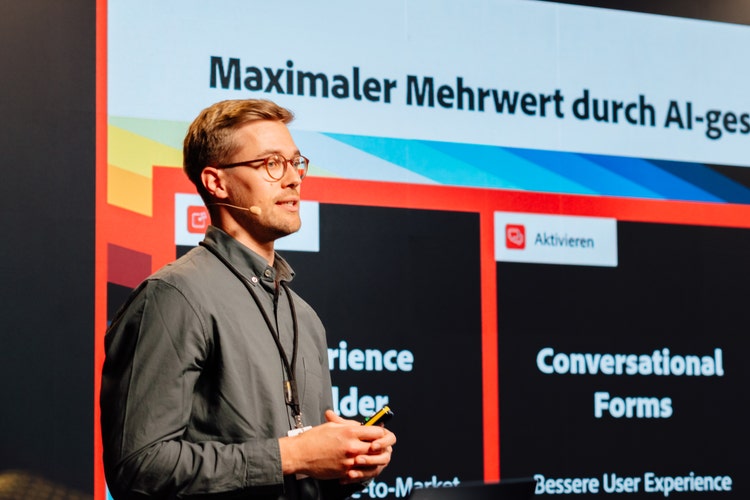
AEM Forms + Adobe Analytics + Personalization
Jonas Strübig from webalyse and Chris Queener from eggs unimedia presented in their talk how AEM Forms can be extended through integration with Adobe Analytics and Target. The goal is not only to ensure a clean technical implementation but also to analyze the actual performance of the forms in use and enable personalized user experiences. They covered various integration options, including the use of a data layer via Launch, server-side APIs, the native Forms Cloud, and Adobe I/O Runtime. In conclusion, the two gave an exciting outlook on the potential that arises when forms are additionally linked with a real-time Customer Data Platform (CDP).
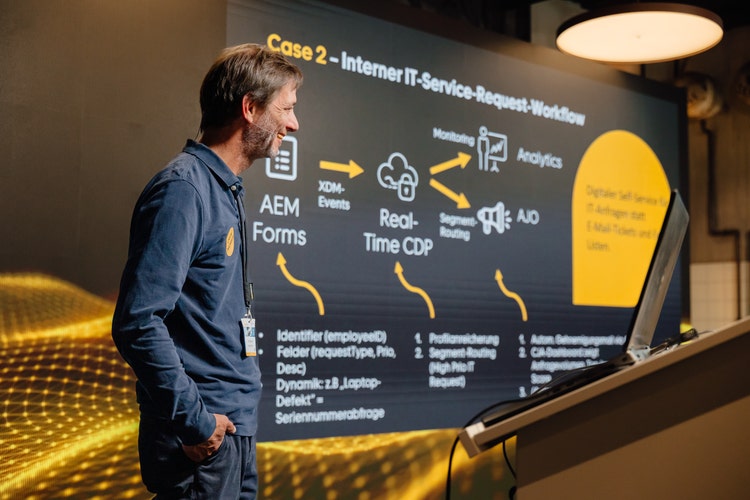
AEM Forms + Edge Delivery Services
In his presentation, Jan-Erik Timme outlined the differences between the classic AEM Forms and Adobe’s new content management approach, the Edge Delivery Services. This modern approach is now also available for AEM Forms and enables form authoring beyond the Adaptive Forms Editor through the Universal Editor. The forms are delivered via the Edge Delivery Layer instead of through the dispatcher and web server. The Universal Editor impresses with extensive features such as A/B testing, a rule editor, WYSIWYG interface, form fragments, integrated tracking, and a powerful style system. A true highlight is the noticeably improved performance and seamless integration of forms into modern websites.
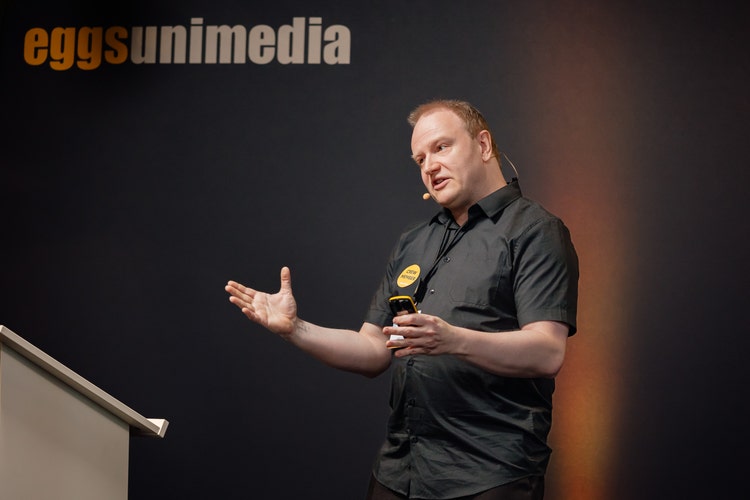
Updates in AEM Forms
Martin Grimm from eggs unimedia summarized the exciting updates around AEM Forms in the final presentation of the day. The biggest platform innovations – Edge Delivery Services, Conversational Forms, and the AEM Forms AI Assistant – had already been presented in dedicated sessions. Additional updates include the AEM Forms Workfront Fusion Connector for seamless process automation, Headless Adaptive Forms for API-based form management, and the Adaptive Forms Core Components for flexible, responsive forms. The update was complemented by practical connectors for Microsoft OneDrive, SharePoint, Azure Blob Storage, and Power Automate, enabling optimal integration of forms into existing systems and workflows. Finally, he covered technical platform updates for the on-premise AEM Forms version 6.5 LTS.

